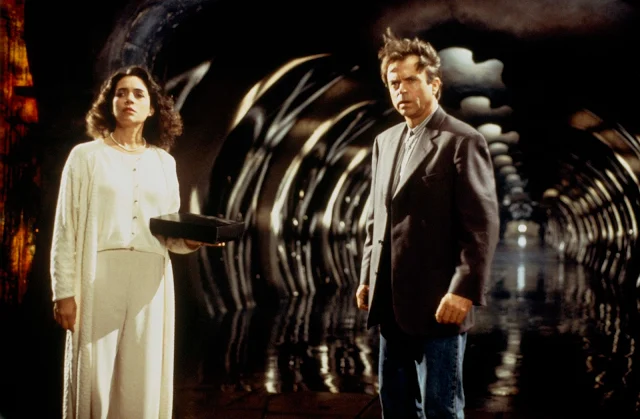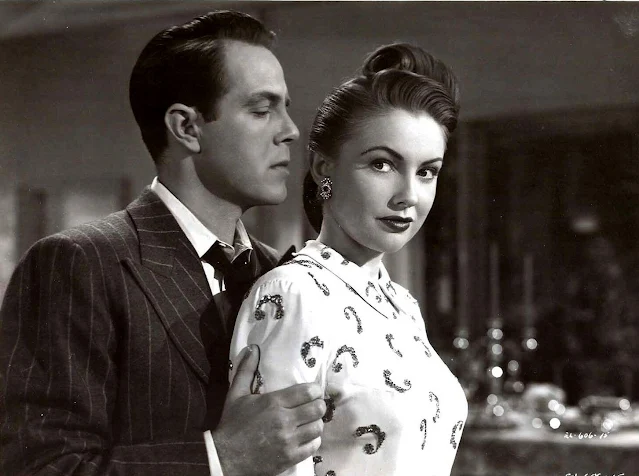 |
| Tokihiko Okada in The Lady and the Beard |
A blog formerly known as Bookishness / By Charles Matthews
"Dazzled by so many and such marvelous inventions, the people of Macondo ... became indignant over the living images that the prosperous merchant Bruno Crespi projected in the theater with the lion-head ticket windows, for a character who had died and was buried in one film and for whose misfortune tears had been shed would reappear alive and transformed into an Arab in the next one. The audience, who had paid two cents apiece to share the difficulties of the actors, would not tolerate that outlandish fraud and they broke up the seats. The mayor, at the urging of Bruno Crespi, explained in a proclamation that the cinema was a machine of illusions that did not merit the emotional outbursts of the audience. With that discouraging explanation many ... decided not to return to the movies, considering that they already had too many troubles of their own to weep over the acted-out misfortunes of imaginary beings."--Gabriel García Márquez, One Hundred Years of Solitude
Search This Blog
Wednesday, December 13, 2023
The Lady and the Beard (Yasujiro Ozu, 1931)
Tuesday, December 12, 2023
In the Mouth of Madness (John Carpenter, 1994)
 |
| Julie Carmen and Sam Neill in In the Mouth of Madness |
A box office failure in its theatrical debut, John Carpenter's cleverly recursive In the Mouth of Madness has since gathered an enthusiastic following. I'm not one of the enthusiasts -- I find it much too frantic to be very scary, entertaining, or thought-provoking -- but I see what they like about it. It's partly a satiric look at the popularity of horror fiction and its movie spinoffs, centering on an obvious target: Stephen King. In the film, the horror writer is called Sutter Cane (Jürgen Prochnow), who lives in New Hampshire (next door to Maine, where King lives). Maybe to avoid any legal problems, the analogy is made explicit in the movie: King is name-checked several times. The other obvious horror writer target is H.P. Lovecraft, who isn't mentioned, but he's dead and can't sue. One reason for my discontent with In the Mouth of Madness is the miscasting of Sam Neill, who plays an insurance investigator who gets caught up in the search for Sutter Cane and his latest manuscript. Neill is one of my favorite underappreciated actors, but he seems all at sea here: Even his well-practiced American accent is sometimes clotted with his native New Zealand vowels. The role, which has a comic undertone, needs a more smart-alecky performer like Jim Carrey or Bill Murray. But then most of the cast -- including a cameo by Charlton Heston and a screen debut by Hayden Christensen as a paperboy -- is just along for the ride as the special effects and the plot kinks mount up.
Monday, December 11, 2023
Mandabi (Ousmane Sembene, 1968)
 |
| Ynousse N'Diaye, Makhouredia Gueye, and Isseu Niang |
Cast: Makhouredia Gueye, Ynousse N'Diave, Isseu Niang, Mustapha Ture, Farba Sarr, Serigne Diayes, Thérèse Bas, Mouss Diaf, Christof Colomb. Screenplay: Ousmane Sembene. Cinematography: Paul Soulignac. Film editing: Gilbert Kikoïne, Max Saldinger.
When we first see Ibrahim Dieng (Makhouredia Gueye), he is having his head shaved and his nose cleaned. Then he strolls through the streets of Dakar, immaculate head held high, the very image of smug prosperity. He is anything but prosperous, of course: He is stone broke, having been unemployed for a very long time, supporting himself, his two wives, and seven children with a combination of handouts and loans, sustained mainly by his pride and a Micawberish sense that something will turn up. That something turns up in the form of a money order from his nephew, a street sweeper in Paris, and it will be the undoing of Ibrahim. Most of the money his nephew sent is not his: Part of it is to go into the nephew's savings, part to his mother, Ibrahim's sister (Thérèse Bas), who is a formidable force herself. The little left over goes to Ibrahim, and the thought of it elicits a brief period of delight -- one of the wives even makes up a song about the money order. But when word of it gets about, Ibrahim is immediately set upon by creditors and handout seekers. Mandabi (which means "money order") is a tragicomic film about postcolonial Africa, its people strangled by governmental corruption. Ibrahim is caught in a Catch-22: He can't cash the money order without an identity card. He can't get an identity card without a birth certificate. He can't get a birth certificate without some form of identification. The bureaucracy that frustrates him is both Dickensian and Kafkaesque. Ousmane Sembene tells Ibrahim's story with sympathy, but also with a smart distancing from the character, whose faults he makes all too clear. The only problem I had with the film is that it ends with a didactic speech by a character delivering the message: People should work to end the corruption that results in such misery. But Mandabi wasn't made for me, but for people like the ones it portrays. It was the first feature made in Wolof, the indigenous language of Senegal, which Sembene chose over French, the official language imposed by colonialism. "Message movies" may be tiresome to us Westerners, but they were an important tool for filmmakers like Sembene.
Sunday, December 10, 2023
Neptune Frost (Anisia Uzeyman, Saul Williams, 2021)

Cast: Cheryl Isheija, Elvis Ngabo, Bertrand Ninteretse, Elane Umuhire, Dorcy Rugamba, Rebecca Uwamahoro, Trésor Niyongabo, Eric Ngangare, Natacha Muziramakenga, Cécile Kayirebwa, Diogène Ntarindwa. Screenplay: Saul Williams. Cinematography: Anisia Uzeyman. Production design: Cedric Mizero, Antoine Nshimiyimana. Film editing: Anisha Achyara. Music: Saul Williams. Costume design: Cedric Mizero.
Neptune Frost is ... well, what is it? An American-Rwandan anti-colonialist, anti-capitalist queer sci-fi musical about the confluence of the autochthonic and technology? If you go looking for more descriptives, you'll encounter concepts like "cyberpunk" and "Afrofuturist" that seem appropriate but also insufficient to characterize the film. And don't expect any spoilers here; I couldn't go into particulars on the plot if you forced me to. It starts in a coltan mine: That's the ore from which the stuff that helps run our computers and cell phones and whatnot is refined. It's a "conflict mineral": Wars, trade and otherwise, are fought over it. And then the story moves, through the peregrinations of our protagonists, Neptune, played by both Cheryl Isheija and Elvis Ngabo (the character is intersex), and Matalusa (Bertrand Ninteretse, aka Kaya Free), to an e-waste dump that becomes a hacker community that takes over the world's computers. Confused? Just go with it: This is an extraordinary movie, both in the watching and in the backstory of how it was made. There is poetry and wit here that needs more than one viewing to assimilate. For example, the name Matalusa is a Joycean pun: "martyr and loser," and by the end of the film it becomes Matalusa King -- Martin Luther King. It's full of music and color -- a special nod to Cedric Mizero's costume design. Maybe it's not a film for everyone, but I am dazzled and baffled by it.
Saturday, December 9, 2023
Party Girl (Daisy von Scherler Mayer, 1995)
 |
| Parker Posey in Party Girl |
Cast: Parker Posey, Anthony DeSando, Guillermo Díaz, Donna Mitchell, Liev Schreiber, Omar Townsend, Sasha von Scherler, Becky Mode, Simon Verhoeven. Screenplay: Harry Birckmayer, Daisy von Scherler Mayer, Sheila Gaffney. Cinematography: Michael Slovis. Production design: Kevin Thompson. Film editing: Cara Silverman. Music: Anton Sanko.
With its larky portrayal of the Manhattan club scene of the 1990s, Party Girl reminded me of those "swinging London" movies of the 1960s, like Richard Lester's The Knack ... and How to Get It (1965). You might even think of Parker Posey as the Rita Tushingham of the '90s. But The Knack now feels tired and dated, while Party Girl remains fresh. Or maybe I feel a special affection for Party Girl because I spent my youth mastering the Dewey Decimal System instead of partying, and it's nice to see a movie that validates my lifestyle, even ironically. Party Girl also is ethnically and sexually more diverse than those '60s movies were, or could have been. The odd thing is that a lot of critics of the time didn't get it. A British reviewer bosleycrowthered, "If bad behaviour and smugness were truly charming, Party Girl might be as much fun as it thinks it is." And even Roger Ebert dismissed it, saying that Posey's character's "life is disorganized, ... but the script could nevertheless organize its approach to her, so the audience wouldn't feel as confused as she is most of the time.... But the movie never pulls itself together." Which I think misses the point: Why ask for an eight-course meal when what you really want is a falafel with hot sauce, a side order of baba ganoush, and a seltzer?
Friday, December 8, 2023
When a Stranger Calls Back (Fred Walton, 1993)

Cast: Carol Kane, Charles Durning, Jill Schoelen, Gene Lythgow, Kevin McNulty, Cheryl Wilson, Jerry Wasserman. Screenplay: Fred Walton. Cinematography: David Geddes. Production design: Chris August. Film editing: David Byron Lloyd. Music: Dana Kaproff.
I haven't seen When a Stranger Calls, Fred Walton's 1979 film, but I gather that it helped launch the horror movie trope "the phone call's coming from inside the house!" There are no calls coming from inside or outside the house in Walton's sequel, When a Stranger Calls Back, because the phone line has been cut. (The film was obviously made before the ubiquity of cell phones.) The setup is a standard one for horror movies: A babysitter is terrorized by a mysterious stranger. In this case, Julia (Jill Schoelen) is a high school student called in at the last moment to sit for a couple's two small children, who have already gone to bed by the time she arrives. As she settles in, there's a knock on the door, which she cautiously answers from inside, not unlocking or opening the door. The voice outside explains that his car has broken down and he'd like to use the phone to call for help. She volunteers to make the call herself, and after some back and forth, he reluctantly agrees, giving her the information she needs. But when she goes to the phone, the line is dead. Still wary, she lies to the man outside, claiming that she made the call, but hoping he'll go elsewhere for help. Walton handles this part of the film efficiently and effectively as things gradually escalate until Julia realizes that the man is inside the house. Fortunately, the parents arrive just in time to save her, but they discover that the children are missing from their upstairs bedroom. Then the film falls apart. Five years pass, and Julia is now a college student. Still suffering the effects of the earlier incident, she begins noticing strange things happening in her apartment. The police are dismissive, but they call on a counselor from the college to help. She turns out to be Jill Johnson (Carol Kane), who was the victim in original film. Jill has good reason to trust Julia's instincts and calls in John Clifford (Charles Durning), the detective from her case. But the convergence of the separate experiences of Jill and Julia muddles the narrative, as both women become terrorized by the new bad guy. And then the movie comes to a thuddingly ridiculous end, as Clifford figures out that the guy must be a ventriloquist. As any 10-year-old kid who has ever tried it knows, ventriloquists rely on visual misdirection: moving the dummy's mouth while keeping theirs nearly motionless. They can't really "throw" their voices, as the movie suggests the guy outside Julia's door did. When a Stranger Calls Back was made for television and first appeared on Showtime, then was released on video. Despite some creepy moments, I suspect that it would have been laughed out of theaters.
Thursday, December 7, 2023
Broadway Melody of 1940 (Norman Taurog, 1940)
 |
| Eleanor Powell and Fred Astaire in Broadway Melody of 1940 |
"Glorious Technicolor," as a song in Silk Stockings (Rouben Mamoulian, 1957) dubs it, was the hallmark of MGM's musicals, starting with The Wizard of Oz (Victor Fleming, 1939). The fourth and final iteration of MGM's series that started with the Oscar-winning (but now laughably antique) The Broadway Melody (Harry Beaumont, 1929) and continued with Broadway Melody of 1936 (Roy Del Ruth, 1935) and Broadway Melody of 1938 (Del Ruth, 1937) was supposed to be in color, but uncertainty about the European market where war was breaking out caused the studio to cut back on the budget. But who needs Technicolor when you have talent like Cole Porter, Fred Astaire, and Eleanor Powell, especially in the big shiny black set for the finale, with Astaire and Powell dancing to "Begin the Beguine"? We probably won't see the likes of that again ever. For that matter, who needs a plot? Most movie musical screenplays were just threads to string the gems on, and the one for Broadway Melody of 1940 is no exception. Astaire and George Murphy play a down-and-out dance team, one of whom gets a chance at the big time, performing with Powell in a new Broadway show. The problem is that there's a mixup about which one is owed the big break. Astaire's character is the one picked by the talent-scouting producer (Frank Morgan), but through the kind of mishap that mis-happens only in the movies, the co-producer (Ian Hunter) thinks that Murphy's character is the one he's chosen. Both guys fall in love with Powell's character, of course, and everything has to be sorted out. Norman Taurog had a good hand with this sort of comedy, thankfully, and Morgan's befuddlement, which also involves an ermine cape that he lends his dates, is moderately amusing. The only flaw is that the movie follows the tradition of its predecessors in inserting vaudeville-style specialty acts between the musical numbers, so we endure extended routines by a juggler and a comic soprano before Astaire, Powell, and Murphy can sing and dance again. This was the only teaming of Astaire and Powell, and each was reportedly intimidated by the other. Powell's dance style was more athletic and acrobatic than Astaire's, and it's demonstrated spectacularly in her solo number "All Ashore," but any fears that their styles might not mesh were put to rest by their duets to "I Concentrate on You" and "Begin the Beguine." Murphy gets shown up by both, and he looks ridiculous dancing on tippy-toes in the "Between You and Me" duet with Powell, which may be why he quit hoofing and went into politics.
Wednesday, December 6, 2023
Trouble Every Day (Claire Denis, 2001)
 |
| Béatrice Dalle in Trouble Every Day |
Cast: Vincent Gallo, Tricia Vessey, Béatrice Dalle, Alex Decas, Florence Loiret Caille, Nicolas Duvauchelle, Raphaël Neal, José Garcia, Hélène Lapoiwer, Marilu Marini, Aurore Clément. Screenplay: Claire Denis, Jean-Pol Fargeau. Cinematography: Agnès Godard. Production design: Arnaud de Moleron. Film editing: Nelly Quettier. Music: Tindersticks.
Claire Denis has steadily resisted linear storytelling and expository dialogue, preferring to trust audiences to pay attention, to assemble the narrative of her films themselves. The result has been films touched with greatness like Beau Travail (1999) and White Material (2009) that invite viewers to experience their stories with greater immediacy than if they were spoon-fed the relationships and motivations of the characters. But sometimes this demand on the viewer backfires, as I think it does in Trouble Every Day. Watching the film can be a visceral experience, a descent into transgressive behavior that's made more disturbing because Denis treats it so coldly. Shane Brown (Vincent Gallo) and Coré Sémeneau (Béatrice Dalle) are both afflicted with extreme versions of a malady, apparently contracted in Guyana, that causes them to become violent when sexually aroused. Shane has his mostly under control, it seems, except that he's newly married and on his honeymoon. To protect his wife from his impulses, he masturbates, once interrupting their intercourse to jerk off frantically. Coré's case has advanced much further: Her husband, a physician (Alex Descas), keeps her locked up, but she escapes to have sex and then bite vampire-like into the throats of her victims. Shane has come to Paris to see Dr. Sémeneau, who has been researching this disorder. After Trouble Every Day culminates in one of the most brutal rape scenes ever staged in a film, we're left with only the suggestion that sex and violence are intimately related, hardly a novel idea. It's one treated in, for example, the two movies called Cat People (Jacques Tourneur, 1942, and Paul Schrader, 1982). Critics were mostly harsh when it was released, yet some revisionism has occurred, possibly because Denis is unquestionably a filmmaker who must be taken seriously. But unlike her best films, Trouble Every Day lacks the payoff of experiencing something meaningful. It ends up being only an intellectualized horror movie.
Tuesday, December 5, 2023
Repeat Performance (Alfred L. Werker, 1947)
 |
| Louis Hayward and Joan Leslie in Repeat Performance |
Cast: Joan Leslie, Louis Hayward, Virginia Field, Tom Conway, Richard Basehart, Natalie Schafer, Benay Venuta, Ilka Grüning. Screenplay: Walter Bullock, based on a novel by William O'Farrell. Cinematography: L. William O'Connell. Art direction: Edward C. Jewell. Film editing: Lewis Sackin. Music: George Antheil.
When Repeat Performance ended, I thought, "That was different. I wish it were better." The premise is a good one: the time loop, usually the stuff of sci-fi movies and seldom of noirish melodramas. And who hasn't wished to live a year (or day or week or month) over, knowing what you know now. That happens to Broadway star Sheila Page (Joan Leslie), who shoots her husband, a blocked playwright and alcoholic philanderer named Barney Page (Louis Hayward) just before midnight on New Year's Eve in 1946. She flees into the night, wishing that she had the year that had led up to the shooting to live over again, sure that she could prevent what had just happened. Well, sure enough she can. As New Year's Day arrives, she discovers that it's not 1947 but January 1, 1946 again. And that she's not wearing the nightgown that she threw a coat over when she ran from the apartment, but instead the new party dress she bought for New Year's. Of course, she can't convince anyone else what has happened, though she does manage to interest her Gay Best Friend, the poet William Williams (Richard Basehart), with her story that he's going to meet a woman, Eloise Shaw (Natalie Schafer), who will have him committed to a mental institution. She also knows that in the first 1946 she and Barney went to London where they met a playwright, Paula Costello (Virginia Field), who wrote the play she starred in but also started an affair with Barney. So can the past be course-corrected? Would there be a movie if it could be? What Repeat Performance needs is a somewhat better script and much better actors. Leslie doesn't make Sheila into a credible figure: She's too much the suffering wife and not enough the resourceful woman who rose to the top on Broadway. And Hayward gabbles some of the soap operatic dialogue and never shows us what Sheila saw in Barney in the first place. The best performance in the movie is Basehart, who handles the coded role of the gay man well enough to let the audience glimpse his secret life. To its credit, the screenplay handles the coding well, too, although we never find out why he was committed to the asylum: Something happened in a toy store, it seems, so maybe we're supposed to infer that William was a pedophile rather than gay. (Although in 1946, the two were often regarded as synonymous.) But despite these flaws, Repeat Performance is a watchable, if frustrating, movie.
